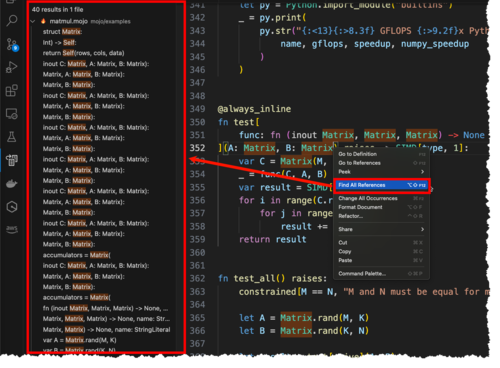Programming language developers Mojo published release of the Mojo SDK 0.7 toolkit, which allows you to compile projects on the local system. The Mojo SDK includes the components necessary for developing applications in the Mojo language, including a compiler, runtime, an interactive REPL shell for building and running programs, a debugger, an add-on for the Visual Studio Code (VS Code) code editor with support for input completion, code formatting and syntax highlighting, a module for integration with Jupyter for building and running Mojo notebook. Mojo SDK builds prepared for the Linux platform. The source codes of the compiler and other developments of the project are planned to be opened after the design of the internal architecture is completed.
IN new version:
Advertisement
- Added type Dict with the implementation of associative arrays for storing key/value pairs.
- Added a safe type for working with pointers “Reference“, which can be used as an alternative to regular unsafe pointers. Reference features tracking of pointer lifetime information and indirect access checks.
- To the standard library sys.info added functions num_physical_cores, num_logical_cores and num_performance_cores to obtain information about physical and logical CPUs, as well as access performance counters.
- The option “-D MOJO_ENABLE_ASSERTIONS” has been added to the compiler to enable debugging checks (assertion) in standard library functions to detect various types of errors. By default, the mode is disabled, as it has a negative impact on performance.
- Mojo Language Server and the plugin for Visual Studio Code have added Find All References and Go to References operations.
The Mojo project is being developed under the leadership of Chris Latner (Chris Lattner), founder and chief architect of the LLVM project and creator of the Swift programming language. The Mojo language combines ease of use for research development and rapid prototyping with suitability for high-performance end products. The first is achieved through the use of the familiar syntax of the Python language, and the second due to the ability to compile into machine code, memory-safe mechanisms (for example, static typing, tracking the lifetime of references and checking the borrowing of variables) and using tools for hardware acceleration of calculations (for example, can involve GPUs, specialized accelerators for machine learning and vector processor instructions). More information about Mojo can be found in the first announcement of the project.
Thanks for reading:
